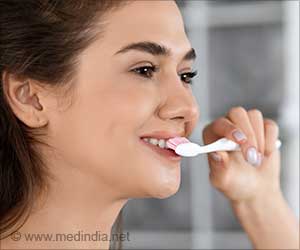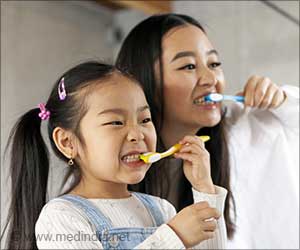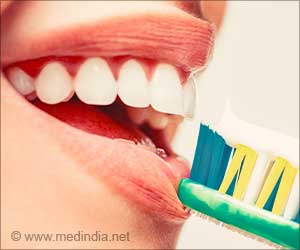Discover 5 common brushing mistakes that could harm your teeth and gums, and learn how to correct them for a healthier dental health.
- Using the wrong toothbrush can lead to enamel erosion
- Incorrect brushing technique may cause gum damage
- Storing your toothbrush wet can encourage bacterial growth
10 Common Brushing Mistakes
Go to source).
Avoid These 5 Common Brushing Errors for Better Oral Health
Here are five common brushing mistakes that could be damaging your teeth, along with tips on how to correct them.Using a toothbrush that's too hard can damage your enamel and gums. #toothbrush #dentalhealth #medindia’
1. Using the Wrong Toothbrush
Mistake: Many people use a toothbrush that is either too hard or too soft for their dental needs. Hard-bristled brushes can be abrasive, causing enamel erosion and gum irritation, while overly soft brushes may not clean effectively.
2. Using the Wrong Brushing Technique
Mistake: Many people brush their teeth using incorrect techniques, such as brushing too hard, using a back-and-forth motion, or not using the right angle. This can lead to enamel wear and gum damage.
Solution: The most effective brushing technique is to hold your toothbrush at a 45-degree angle to your gums. Use gentle, circular motions to clean each tooth surface thoroughly. Avoid pressing too hard; gentle brushing is more effective and less damaging. An electric toothbrush can help ensure the correct brushing motion and pressure.
3. Not Brushing Your Teeth Long Enough
Mistake: A common mistake is brushing for less time than recommended. Many people spend only a minute or less brushing their teeth, which may not be sufficient to remove all plaque and bacteria.
4. Skipping the Inner Surfaces of the Teeth
Mistake: It's easy to focus on the outer surfaces of your teeth and neglect the inner surfaces. However, plaque can build up on all surfaces, including the ones you don't see.
5. Storing Your Toothbrush Wet
Mistake: Many people store their toothbrushes in a damp environment, such as a closed container or a humid bathroom. This can lead to bacterial growth on the toothbrush and potentially introduce harmful bacteria into your mouth.
Solution: After each use, rinse your toothbrush thoroughly and store it in an upright position to allow it to air-dry. Ensure your toothbrush is not in contact with other brushes, and avoid covering it with a closed cap. Keeping your toothbrush dry helps prevent bacterial growth and keeps it clean for your next use.
Maintaining proper brushing habits is crucial for good oral health. By avoiding these common mistakes using the wrong toothbrush, incorrect brushing techniques, insufficient brushing time, neglecting inner tooth surfaces, and storing your toothbrush wet—you can protect your teeth and gums from damage and ensure a healthier smile. If you have concerns about your brushing technique or oral care routine, consult your dentist for personalized advice and recommendations. A few adjustments to your daily routine can make a significant difference in your dental health.
Reference:
- 10 Common Brushing Mistakes - (https://theneemtree.co.uk/blog/health-tips/10-common-brushing-mistakes/)
Source-Medindia
















